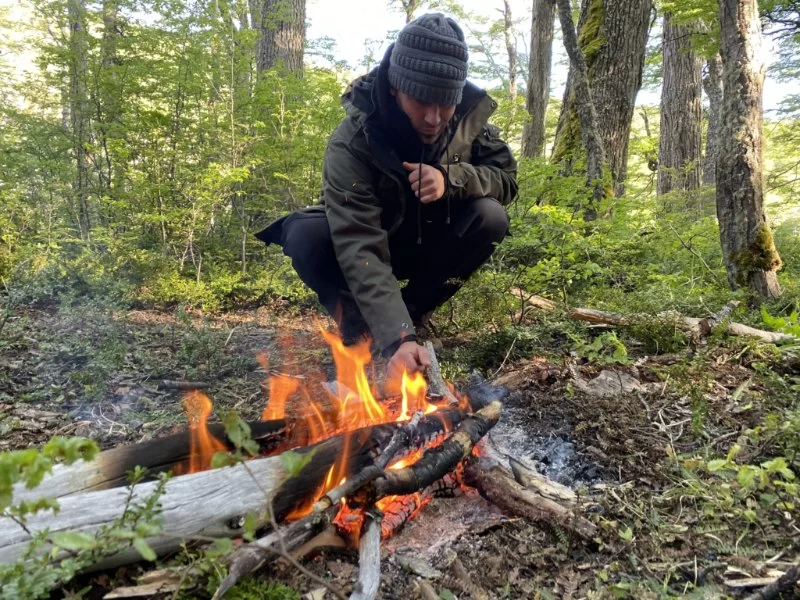Learn the essential principles of wilderness survival for beginners, including shelter, water, fire, food, and mindset. Gain real stories, expert tips, and practical guidance for safe outdoor adventures.

- 1 - The Importance of Survival Skills for Beginners
- 2 - Shelter as the First Priority in the Wilderness
- 3 - Finding and Purifying Safe Water Sources
- 4 - Mastering Fire and Its Survival Benefits
- 5 - Food Strategies for Survival Beginners
- 6 - Mental Preparedness and Staying Calm
- 7 - Real Experiences from Wilderness Survival
- 8 - Tools and Resources That Make a Difference
1 - The Importance of Survival Skills for Beginners
When it comes to outdoor adventures, beginners often underestimate how quickly a fun trip can turn into a survival situation. Understanding the principles of wilderness survival for beginners is not about expecting the worst—it’s about being prepared to face nature confidently. These skills can mean the difference between a safe return and an avoidable crisis. Even short hikes can test your ability to adapt if weather changes, gear breaks, or you lose your way.
2 - Shelter as the First Priority in the Wilderness
Exposure is one of the greatest threats in the wilderness. Beginners must learn that creating shelter comes before searching for food. A simple tarp, natural lean-to, or insulated sleeping bag can protect against cold, rain, or heat. A real-world example comes from campers in the Rockies who endured a sudden snowstorm; the ones who immediately built a windproof shelter stayed safe, while others without shelter struggled through freezing temperatures. Shelter is survival’s first line of defense.
3 - Finding and Purifying Safe Water Sources
Water is life, but not every natural source is safe. Beginners often assume clear streams are drinkable, yet bacteria and parasites can pose serious risks. Learning to locate water sources—such as rivers, lakes, or rain collection points—and using purification tablets, filters, or boiling is essential. Some outdoor enthusiasts at Pine Cliff Resort shared how carrying compact water filters transformed their trips, offering both safety and peace of mind when venturing off the beaten path.
4 - Mastering Fire and Its Survival Benefits
Fire provides more than warmth; it signals for help, cooks food, and keeps predators away. Beginners should practice with different ignition tools before heading into the wild, from matches and lighters to flint and steel. One survival group in Oregon reported that practicing fire-making ahead of time gave them confidence when an unexpected rainstorm soaked their campsite. Fire is not just a tool—it’s a psychological anchor that restores calm in stressful conditions.
5 - Food Strategies for Survival Beginners
While shelter and water come first, food provides energy for sustained survival. Beginners often overlook the importance of simple, high-calorie options like nuts, jerky, or energy bars. Nature offers edible plants, berries, and fish, but only with proper knowledge. A beginner once documented how misidentifying wild berries nearly led to poisoning—a reminder that carrying safe backup snacks is wise. Choosing a campsite near fishing streams or berry patches can also provide an advantage for those prepared with the right skills.
6 - Mental Preparedness and Staying Calm
Survival is as much about mindset as it is about gear. Panic clouds judgment, while calm thinking guides problem-solving. Many survival experts emphasize the “STOP” method—Stop, Think, Observe, and Plan—as a mental checklist for beginners. A camper lost in the Smoky Mountains shared how repeating this method helped them retrace their steps calmly instead of wandering aimlessly. Building confidence through small challenges prepares beginners for bigger, real-world situations.
7 - Real Experiences from Wilderness Survival
Stories bring survival principles to life. One beginner hiker in Utah found themselves without a lighter and successfully built a fire with dry grass and flint, boosting their confidence dramatically. Another traveler at Pine Cliff Resort learned the hard way that skipping basic shelter-building drills at home left them unprepared during a windy night by the lake. These real accounts remind us that survival training is not theoretical—it’s practical knowledge that keeps you alive.
8 - Tools and Resources That Make a Difference
Having the right tools can turn survival from a struggle into an adventure. A quality knife, fire starter, water filter, and reliable light source should always be part of a beginner’s kit. Today, many outdoor stores, including resources at Pine Cliff Resort, provide gear specifically designed for beginners learning wilderness survival. Investing in tested, practical tools increases not only safety but also enjoyment during your outdoor journeys.
McDonald's
24943 John J Williams Hwy, Millsboro, DE 19966, USA
Visit Location PageMt. Hood Village Campground
65000 US-26, Welches, OR 97067, USA
Visit Location Page